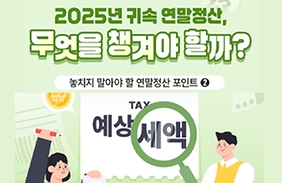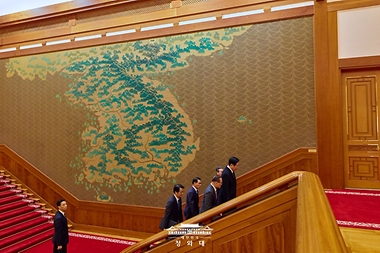콘텐츠 영역
Secretary General Humaid Al-Ali, President Moon Tae-Young, Secretary-General Chung Yong-chil, Professor Kim Joong-kwan,Excellencies and Distinguished Guests,
Let me first congratulate you on the convening of the 10th Korea-Middle East Cooperation Forum and extend a sincere welcome to all of you here.
I would also like to thank the Emirates Center for Strategic Studies and Research, the Korea-Arab Society, and the Jeju Peace Institute for all their hard work in preparation for this forum.
There is a saying in Korea, “even the landscape changes in a decade.” It alludes to how much things can change in 10 years.
Analogously, over the last 10 years that the Korea-Middle East Cooperation Forum has been in existence, the relationship between Korea and the Middle East also went through a remarkable transformation.
What was once a relationship of choice evolved into a relationship of necessity, as the scope of our partnership expanded from the relatively narrow confines of economic interest to a much broader comprehensive cooperation.
In this process, I believe that the Korea-Middle East Cooperation Forum – by providing a channel for frank and passionate debate among government, academia, and private sectors of both sides – played a crucial role in widening the range and elevating the quality of our relationship.
I thank you for your contribution in this regard.
Today, I would like to reflect on the evolution of our relationship and share with you some of my thoughts on the Park Geun-hye government’s policy towards the Middle East and the future course of our cooperation.
Distinguished Guests,
The bond between Korea and the Middle East can be traced back to thousand years.
Over the past few decades, we have also built and nurtured a relationship of win-win structure.
For Korea, the Middle East was the reliable partner that supplied energy so critical to its economic development.
For the Middle East, Korea was the trustworthy and diligent partner that provided the skills and the manpower needed for its modernization and infrastructure development.
However, it is also true that as our relationship has been focused mainly in the economic interests of both sides, the relative importance of the partnership went through the cycle of ups and downs reflecting the market condition of the given times.
In view of the political and social transformation in the Middle East and the economic achievements in Korea over the last decade, it is time for Korea to 'revisit the Middle East' and the Middle East to 'rediscover Korea.'
In other words, it is time for us to recalibrate the character of our relationship so that we may elevate it to reflect the progress we made over the years and fulfill the potential to bring a more prosperous future.
Distinguished Guests,
With a view to meeting such demands and challenges of our time, I would like to characterize Korea’s policy towards the Middle East as the "Comprehensive Partnership towards a new horizon.”
Under this new partnership, we will seek to create a relationship that is less vulnerable to the capricious changes of the times.
We will seek to create a relationship that contributes to the common prosperity of the region and the world – this coincides with the vision of promoting the well-being and happiness of the global community put forward by the new government of Korea.
To begin building this partnership, I believe three Cs are needed: mutually “complementing” economic relations, mutually “contributing” political relations, and mutually “communicating” cultural relations.
First, let me address the mutually complementing economic cooperation.
Today, the Middle East is reaching beyond its traditional role as the global supplier of energy and the major player in the global financial market.
The region is making preparation for the post-oil era by looking into possible new growth in areas such as renewable energy, information technology (IT), nuclear energy, and the health and medical industry.
Korea welcomes such policy direction of the Middle East and hopes that this will, in turn, lead to an opportunity to foster a more future-oriented and multi-faceted partnership with the Middle East.
In this regard, there are already Korean nuclear power plants being built in the UAE, and hundreds of Middle Eastern patients are arriving in Korea for medical treatments in Korean hospitals.
I believe that such new and diverse trends in our bilateral cooperation show the path we should take toward the future.
Next, let me address the mutually contributing political relations.
In international relations, it is hard to maintain a long-term relationship without firm and mutual trust.
Furthermore, the peace and stability of the Middle East is inseparable from the peace and stability of the Korean Peninsula and the world.
Our relationship is no longer defined only as the supplier and buyer of petroleum.
Events occurring in global hotspots such as the Korean Peninsula and the Middle East affect the strategic calculations of key stake-holders that shape the larger contour of the global security landscape.
Thus, as a stake-holder in maintaining the peace and stability in the Middle East, Korea is making active contributions in the international community’s efforts in places like Iraq, Lebanon, Somalia, and South Sudan, safeguarding and making peace.
Also as a member of the UN Security Council, Korea is looking for ways to make positive contributions in the process of resolving the Syria crisis, for example, by hosting the third Working Group Meeting on Economic Recovery and Development of Syria in few weeks time.
Furthermore, Korea is reaching out to engage not only individual partners, but also regional organizations through strategic dialogues in an effort to deepen its relationship with the Middle East.
For example, on the occasion of the UN General Assembly, I held the first Foreign Ministers’ Meeting with Gulf Cooperation Council (GCC) during which the two sides agreed to hold regular strategic dialogues in the future, and also held the first Ministerial Meeting with the Arab League during which a memorandum of understanding was signed establishing a high-level channel of dialogue.
Finally, let me address the mutually communicating cultural relationship.
Korean art and culture is receiving an enthusiastic reception throughout the world, a phenomenon often referred to as the Korean Wave.
The Korean Wave is also occurring in the Middle East.
Perhaps, the fact that there are many similarities between our two cultures – such as the common emphasis on the importance of family and friendship, and the preservation of tradition – make the Korean Wave more receptive in the Middle East.
At the same time in Korea, the 140-thousand-strong muslim community has become a sturdy bridge that links our two peoples and cultures.
In this vein, I believe that our younger generations are invaluable assets for our two cultures that will one day become the catalysts for a more prosperous common future together.
It is with such belief that we included the session for the next generation in this year's Forum.
Distinguished Guests,
This year marks the 40th anniversary of the arrival of the first group of Korean construction workers in the Middle East.
In commemoration of this historic event, Korea and Saudi Arabia are jointly launching an initiative tentatively called the “Saudi Homecoming Day” – a series of events for retired Korean construction workers to visit Saudi Arabia to witness for themselves their legacy and contribution.
Through such an initiative, we hope to deepen our ties with our friends in the Middle East by recalling our contribution in laying the groundwork for economic growth.
I have been told that in the words of the Prophet Muhammad, “innamal a'malu binniyat,” Meaning, the reward of deeds depends on the intentions.
True to these words, I believe that as far as we have the sincere intention and willingness to deepen our friendship and cooperation, we will be able to harvest the rewards of such intention.
I hope that our common intention and hope will yield a new partnership between Korea and the Middle East for years ahead.
Thank you.
문의처 : 문화체육관광부 정책포털과
| 뉴스 |
|
|---|---|
| 멀티미디어 |
|
| 브리핑룸 |
|
| 정책자료 |
|
| 정부기관 SNS |
|
※ 브리핑룸 보도자료는 각 부·처·기관으로부터 연계로 자동유입되는 자료로 보도자료에 포함된 연락처로 문의
※ 전문자료와 전자책의 이용은 각 자료를 발간한 해당 부처로 문의
이전다음기사
다음기사제10차 한-중동 협력포럼 기조연설(국문)정책브리핑 게시물 운영원칙에 따라 다음과 같은 게시물은 삭제 또는 계정이 차단 될 수 있습니다.
- 1. 타인의 메일주소, 전화번호, 주민등록번호 등의 개인정보 또는 해당 정보를 게재하는 경우
- 2. 확인되지 않은 내용으로 타인의 명예를 훼손시키는 경우
- 3. 공공질서 및 미풍양속에 위반되는 내용을 유포하거나 링크시키는 경우
- 4. 욕설 및 비속어의 사용 및 특정 인종, 성별, 지역 또는 특정한 정치적 견해를 비하하는 용어를 게시하는 경우
- 5. 불법복제, 바이러스, 해킹 등을 조장하는 내용인 경우
- 6. 영리를 목적으로 하는 광고 또는 특정 개인(단체)의 홍보성 글인 경우
- 7. 타인의 저작물(기사, 사진 등 링크)을 무단으로 게시하여 저작권 침해에 해당하는 글
- 8. 범죄와 관련있거나 범죄를 유도하는 행위 및 관련 내용을 게시한 경우
- 9. 공인이나 특정이슈와 관련된 당사자 및 당사자의 주변인, 지인 등을 가장 또는 사칭하여 글을 게시하는 경우
- 10. 해당 기사나 게시글의 내용과 관련없는 특정 의견, 주장, 정보 등을 게시하는 경우
- 11. 동일한 제목, 내용의 글 또는 일부분만 변경해서 글을 반복 게재하는 경우
- 12. 기타 관계법령에 위배된다고 판단되는 경우
- 13. 수사기관 등의 공식적인 요청이 있는 경우
정책 NOW, MY 맞춤뉴스
정책 NOW
인기, 최신, 오늘의 영상 , 오늘의 사진
인기 뉴스
-
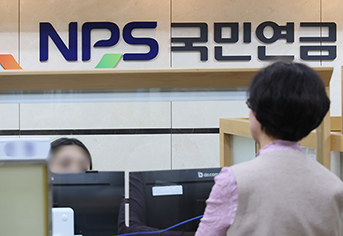 '국가가 연금 지급 보장' 법제화…내년부터 달라지는 국민연금
'국가가 연금 지급 보장' 법제화…내년부터 달라지는 국민연금
-
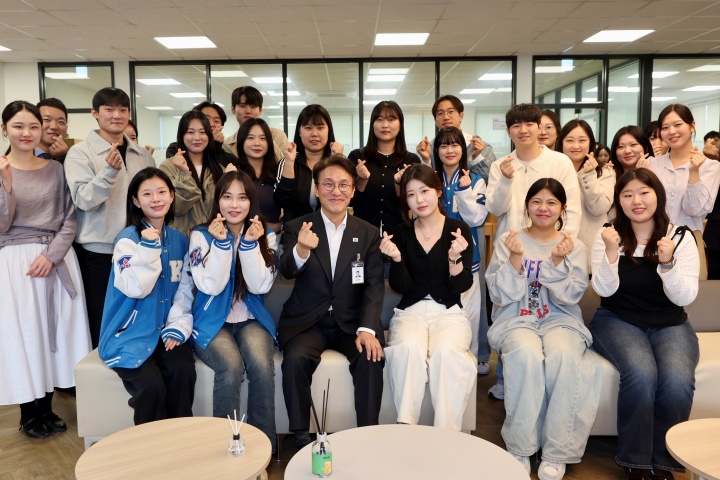 청년 43만 명 이상에 주거비 지원…'2차 청년정책 기본계획' 확정
청년 43만 명 이상에 주거비 지원…'2차 청년정책 기본계획' 확정
-
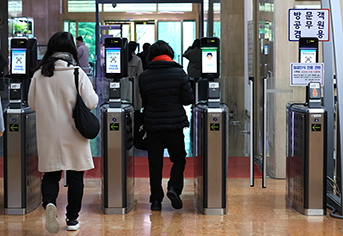 내년 공무원 보수 3.5% 인상…7~9급 저연차 초임은 6.6% ↑
내년 공무원 보수 3.5% 인상…7~9급 저연차 초임은 6.6% ↑
-
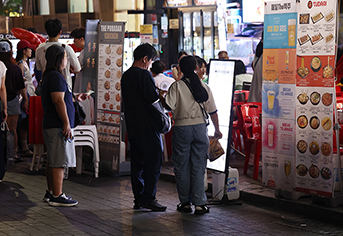 내년부터 소상공인 고용보험료 최대 80% 지원…사회 안전망 강화
내년부터 소상공인 고용보험료 최대 80% 지원…사회 안전망 강화
-
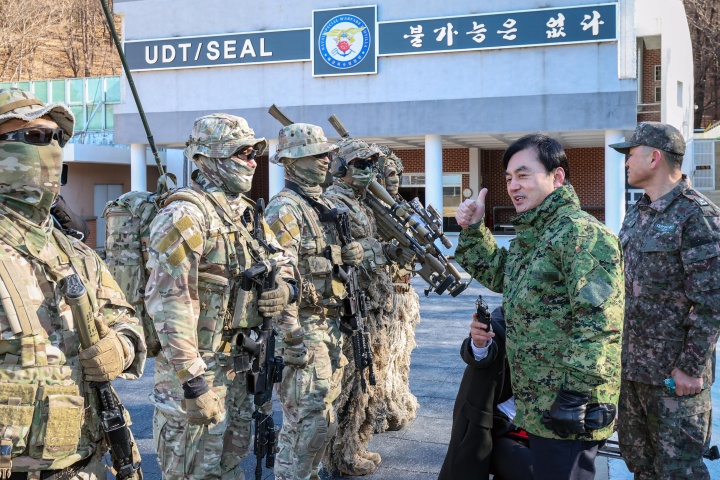 국방장관, 퇴역 앞둔 장보고함 방문 "핵추진잠수함 사업 신속 추진"
국방장관, 퇴역 앞둔 장보고함 방문 "핵추진잠수함 사업 신속 추진"
-
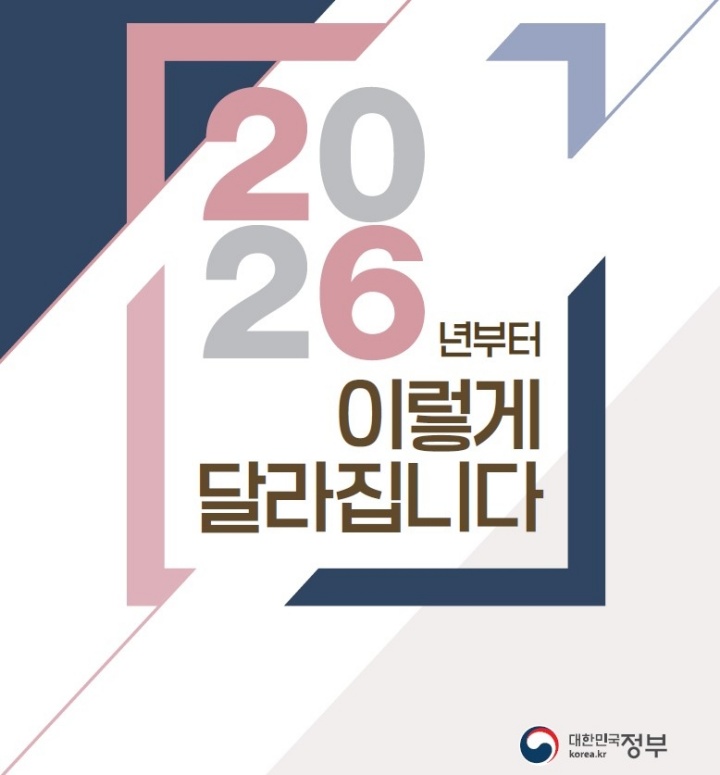 새해 보육수당 비과세 자녀 1인당 월 20만 원…예체능 학원비도 세제 혜택
새해 보육수당 비과세 자녀 1인당 월 20만 원…예체능 학원비도 세제 혜택
-
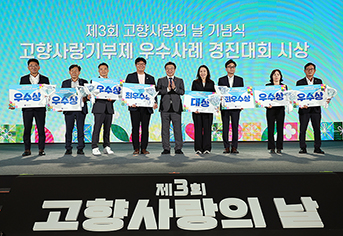 연말정산 혜택도 받는 '고향사랑기부제'…3년 만에 모금액 1000억 원
연말정산 혜택도 받는 '고향사랑기부제'…3년 만에 모금액 1000억 원
-
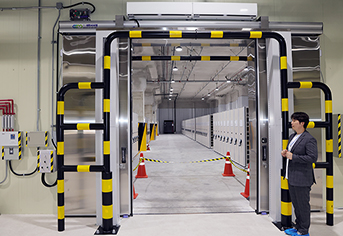 '도움 필요한 아동' 국가책임 강화…해외입양 단계적 중단
'도움 필요한 아동' 국가책임 강화…해외입양 단계적 중단
-
 등유·LPG 사용 취약가구에 '에너지바우처' 14만 7000원 추가 지원
등유·LPG 사용 취약가구에 '에너지바우처' 14만 7000원 추가 지원
-
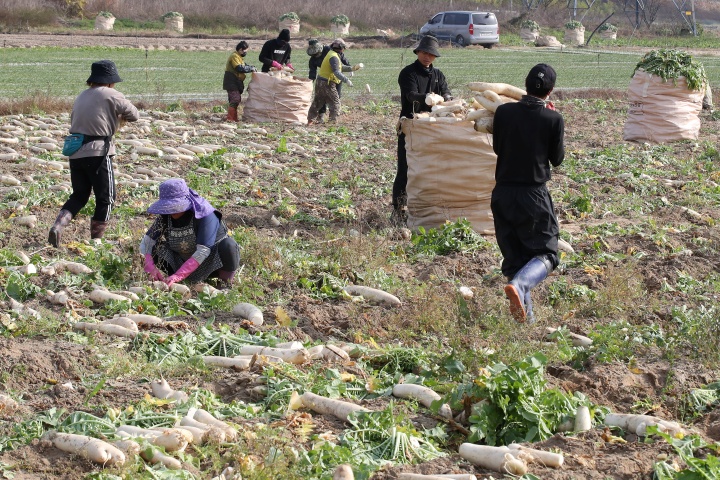 내년 경기 연천·강원 정선 등 10개 군 '기본소득 시범사업' 시작
내년 경기 연천·강원 정선 등 10개 군 '기본소득 시범사업' 시작
최신 뉴스
- 과학기술 기반 혁신성장 추진 및 AI 3강 도약 본격 시동을 위해 '26년 총 8조 1,188억원 투자
-
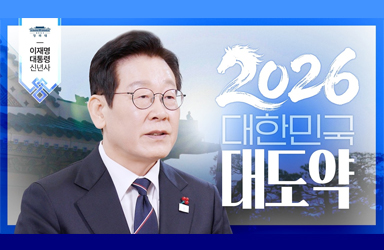 2026년을 대한민국 대도약의 원년으로
2026년을 대한민국 대도약의 원년으로
- 2025년 연간 및 12월 수출입 동향
-
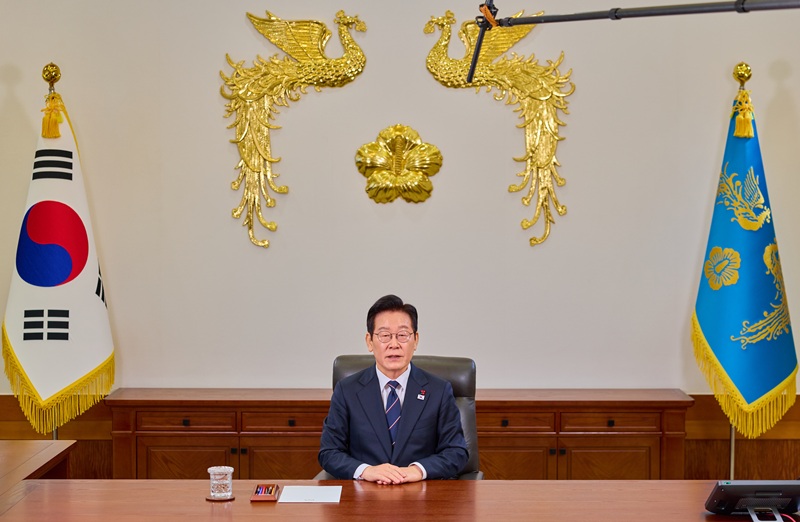 이 대통령 신년사 "올해를 대한민국 대도약 원년으로 만들겠다"
이 대통령 신년사 "올해를 대한민국 대도약 원년으로 만들겠다"
- CES 2026, 역대 최대 통합한국관 구축
- 2026년에도 홍합, 굴 등 패류독소 안전하게 관리한다
- 2026년 상반기 적용 항만 및 어항공사 표준시장단가 공고
- 어구부표 보증금제 대상 어구 확대 시행
- 수산공익직불제 자격요건 확인, 신청 결과 조회 이제는 비대면으로 쉽고 편리하게 하세요
- 12월 중 전세사기피해자등 664건 추가 결정
 이 누리집은 대한민국 공식 전자정부 누리집입니다.
이 누리집은 대한민국 공식 전자정부 누리집입니다.






